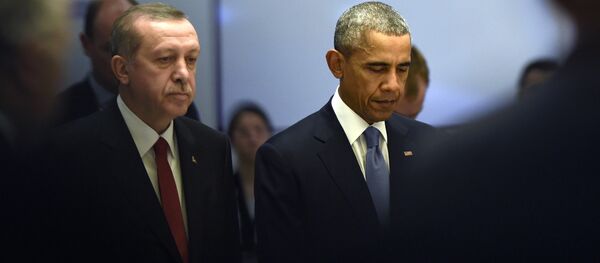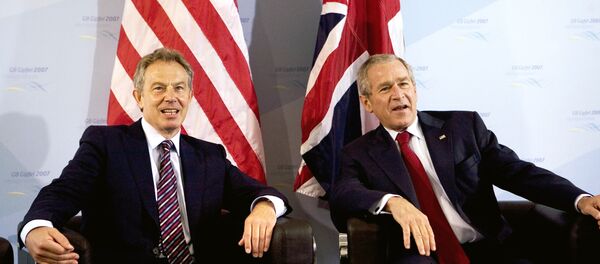“The two countries have some certain things in common, which are being defined by the global causes of the ongoing processes within these countries,” the author adds.
He further explains that France and Turkey are the only NATO member states which strive to maintain independent foreign and internal policies.
This, he says, is the reason why these two countries have become targets for terrorists and other destructive forces.
Among such examples of independent policy, the author cites France’s objections to the US-backed Transatlantic Trade and Investment Partnership (TTIP) deal and the recent announcement of the country’s junior minister for trade and commerce that “it will be 'impossible for the European Union and the United States to conclude negotiations on a trade deal by the end of 2016.'”
“I think a deal in 2016 is impossible and everyone knows it, including those who say otherwise,” the minister, Matthias Fekl, said in a statement earlier in July.
“No free trade agreement should be concluded if it does not respect EU interests. Europe should be firm. France will be vigilant about this,” Valls said, addressing members of the governing Socialist Party at the end of June.
With regards to Turkey, Lepekhin says, the recent coup attempt has “lanced an abscess,” which has been “growing like a weed” and which has bowled down the Turkish leadership.
“From the times of Mustafa Kemal Ataturk (the founder of the modern Turkish state), the Turkish military has exercised much power relative to the president and the government. Thus, the Turkish military have found themselves subordinated to NATO generals and, hence, the US,” the author explains.
Therefore it turns out that modern Turkey is a country with an external management.
In such a situation, he says, the Turkish elites have no choice – either they consent to the dictatorship of the US or try to get rid of it to further pursue their independent policy.
“Erdogan’s group seems to have chosen the latter and that is why it has been supported by the country’s various political movements,” he says.
The author says that the strengthening of power around Erdogan might inevitably lead to Islamization and certain dictatorship, however the country has opted for the lesser of two evils.






